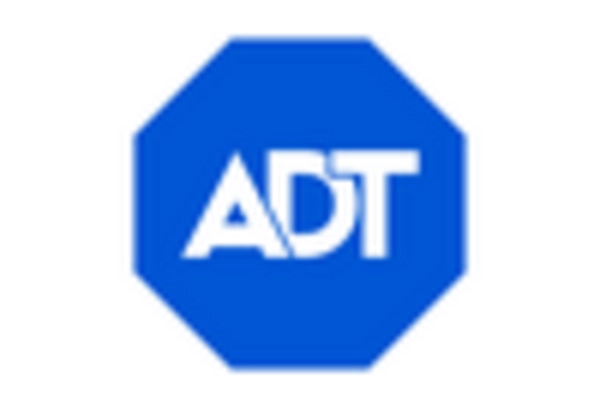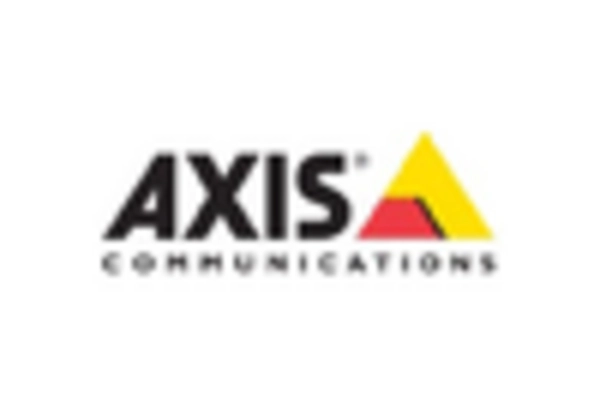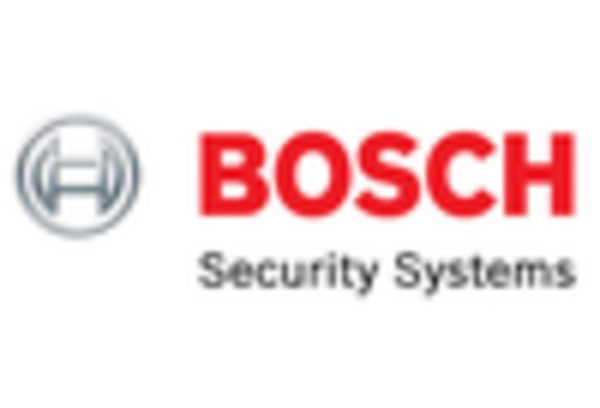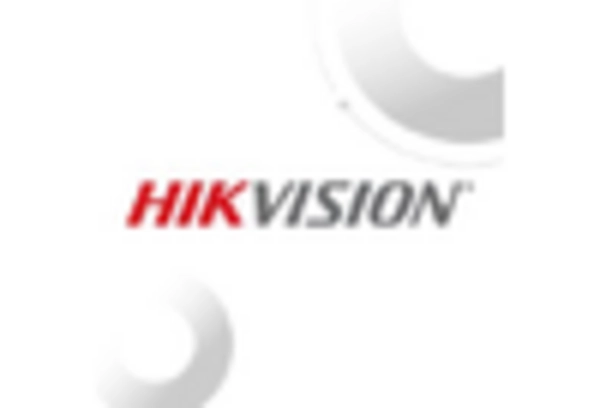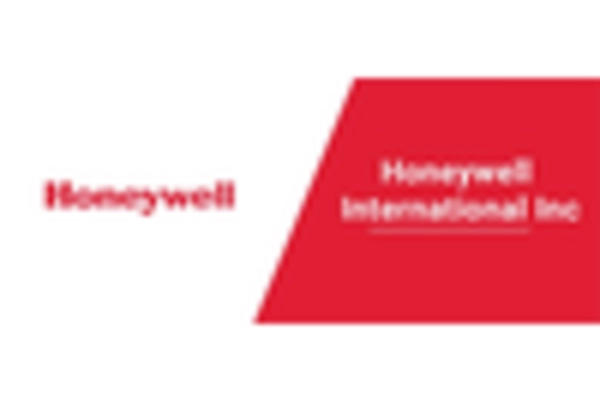The physical security market in South Korea is characterized by a dynamic competitive landscape, driven by technological advancements and increasing demand for integrated security solutions. Major players such as Johnson Controls (US), Hikvision (CN), and Honeywell International (US) are at the forefront, each adopting distinct strategies to enhance their market presence. Johnson Controls (US) focuses on innovation through smart building technologies, while Hikvision (CN) emphasizes its extensive product range and competitive pricing. Honeywell International (US) is leveraging its expertise in IoT to provide comprehensive security solutions, thereby shaping a competitive environment that prioritizes technological integration and customer-centric offerings.
Key business tactics within this market include localizing manufacturing and optimizing supply chains to enhance operational efficiency. The competitive structure appears moderately fragmented, with several key players exerting influence over various segments. This fragmentation allows for niche players to thrive, while larger companies consolidate their market positions through strategic partnerships and acquisitions, thereby enhancing their service offerings and geographical reach.
In October 2025, Hikvision (CN) announced the launch of its new AI-driven surveillance system, which integrates advanced analytics to improve threat detection capabilities. This strategic move is significant as it positions Hikvision to meet the growing demand for intelligent security solutions, potentially increasing its market share in a highly competitive environment. The introduction of AI technology not only enhances the functionality of their products but also aligns with the broader trend of digital transformation within the industry.
In September 2025, Johnson Controls (US) expanded its partnership with a leading telecommunications provider to enhance its smart building solutions. This collaboration is crucial as it allows Johnson Controls to integrate advanced communication technologies into its security systems, thereby offering clients more robust and interconnected solutions. Such partnerships are indicative of a trend towards collaborative innovation, which is likely to define the future of the physical security market.
In August 2025, Honeywell International (US) unveiled a new cloud-based security management platform designed to streamline operations for businesses. This platform's introduction reflects Honeywell's commitment to digitalization and the growing importance of cloud solutions in the physical security sector. By providing a centralized management system, Honeywell aims to enhance user experience and operational efficiency, which could lead to increased customer loyalty and retention.
As of November 2025, current trends in the physical security market include a strong emphasis on digitalization, sustainability, and the integration of AI technologies. Strategic alliances are increasingly shaping the competitive landscape, enabling companies to leverage complementary strengths and enhance their service offerings. Looking ahead, competitive differentiation is likely to evolve from traditional price-based competition towards a focus on innovation, technological advancement, and supply chain reliability. This shift suggests that companies that prioritize these aspects will be better positioned to thrive in an increasingly complex market.


